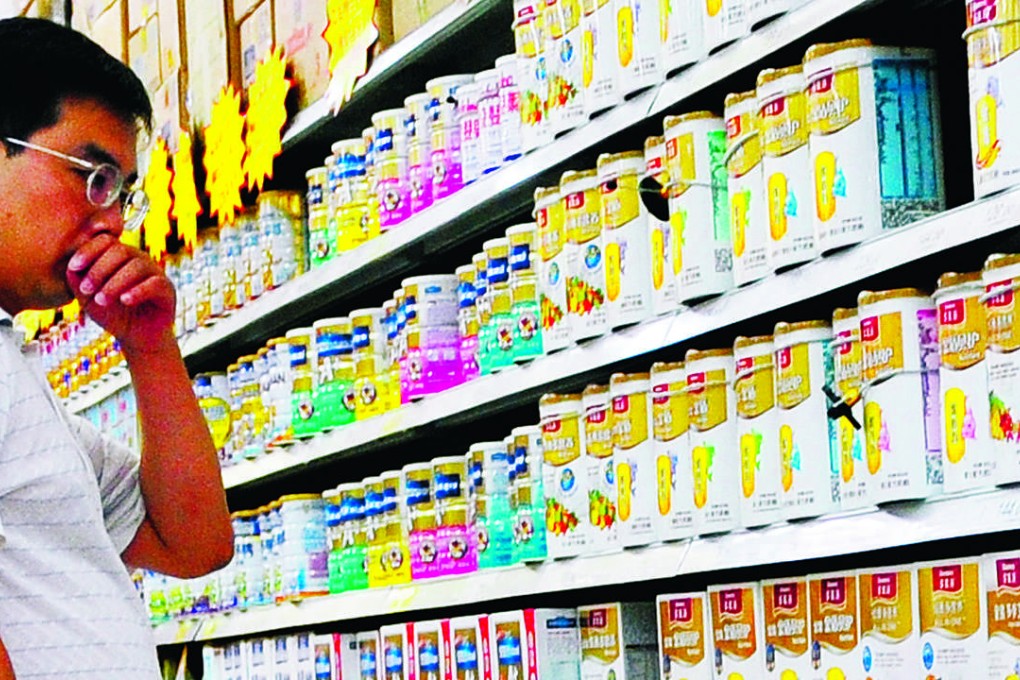Baby formula scare: China’s food safety watchdog ‘acted to avoid public panic’
The China Food and Drug Administration backtracks on earlier claim that illegally produced cans met national standards

Mainland China’s food safety watchdog has backtracked on its endorsement of baby milk powder exposed as fake, saying its earlier approval was aimed at preventing a panic.
The case has also sparked questions from the public and media about why the government withheld information about the fake products for months after suspects were arrested.
About 17,000 cans of formula sold in several provinces have been traced to a syndicate that took cheap milk powder or product with defective packaging and sold it under multiple brand names, some of them top-sellers.
Shanghai police began investigating the syndicate in September and arrested six people in January. But the public only learned of the fake formula on March 22, when the Procuratorate Daily, the mouthpiece of the national prosecutor’s office, revealed details of the case.
On Monday, the China Food and Drug Administration said the products seized by the police had passed its quality tests and met national standards. It said the formula did not pose a health risk.